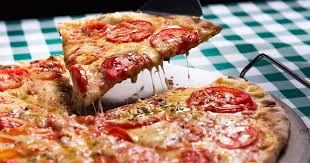We are what we eat.
- ScienceMeThis
- Jun 3, 2019
- 4 min read
Updated: Sep 29, 2019
Food is our common ground, a universal experience
James Beard

We are what we eat. Biologically true. Food can be a pleasure, but it is first and foremost a necessity. Our body is capable of amazing things: it creates new cells every minute, it makes sure muscles are adapting to the type of exercises we’re doing, it distributes oxygen everywhere, it allows for muscles to contract even without oxygen (for short period of time but still!), it transforms matter into energy and prioritises energy distribution based on current needs. For instance, the brain will get most the energy supply but then, based on the time of day and our activity, energy will go to our muscles when walking or the digestive system after meals (hence general feeling of tiredness after meals, all the available energy is often recruited for digestion). Our body is amazing, but one thing it doesn’t do is create energy out of the blue. In order to function, it needs fuel. Fuel it gets through food in forms of nutrients that will then be transformed according to the body needs. Depending on what we eat, our body will have access to specific nutrients. It relies on us to know what we should eat in order to give it all it needs. And when we don’t, our body sends us signal to let us know we need to adjust our diets. It’s up to us to recognise those signs and eat the food that will give us the nutrients we need.
We are what we eat. Culturally accurate. Food has become so much more than just a source of energy. It is one of the centre pieces of our societies, not matter which one. The relation to food in different cultures contributes to define how we behave in society. It even defines how members of a family behave with each other. Sharing food, no matter where in the world, is a social act. How we do it varies based on countries, but it is a core element of social interactions.
Who eats first? Do you talk at the table or is it “grown-ups” only territory? Do you use cutlery, or do you eat with your hands? Can you sing at the table? Are meals shared in the close family circle or is the entire community eating together? What type of beverage do you drink and when can you drink what? Is soda a thing a the dinner table or is it water only?
The approach to food and meals we had growing up impacts who we are as adults. Some people see meals as a necessity, a way to recharge the batteries and nothing more. The less time they spent eating, the better they are. For others, sharing meals is a big thing, it’s a time to come together and spend time with relatives and friends, a time to be together. It can be an opportunity to show another of your facets, impressing friends with great cooking abilities. Then food becomes the centre of social interactions, the excuse to gather and spend time altogether. Our relationship to food contributes to define who we are.
We are what we eat. Individually correct. More and more, what you eat (or don’t eat) is becoming a political statement. I do not know a lot of vegetarian not eating meat because they do not like it or any vegan that actually dislikes honey. Dietary restrictions might impact your diet and make you partially vegan out of necessity, but usually the first reason for being vegetarian has nothing to do with actual taste. Overtime, you might happen to not stand raw meat the way you use to before becoming vegetarian, but that is more due to habituation than actual taste. You can get used to a lot, same you can become uneasy around things you used to be fine with. It’s a matter of exposure.

That’s personal. The reasons for switching diet to omnivorous to vegetarian (including flexitarian, pescatarian, and all other diets you can choose) is usually a moral one. On some levels, reducing/stopping eating meat has to do with personal believes and ethnical reason. On the other hand, eating meat can be part of who a person is, based on culture, habits, or taste. How you eat food is also a statement about who you are. Some people cook with a lot of cream, fry everything, love to use butter… while other only swear by steamed meals. Some will have take-away whereas others only have home-cooked meals and despite everything pre-made. Some people love their food salty or very spicy, while other have a very low tolerance to “spicy-hot”. It’s all part of who we are. What we eat and how we eat contributes to define us as a person.
Our food choices can reflect political statements, ethnical believes, economical choices, time-convenience, rebellious tendencies, or just personal tastes. One thing is for sure: what we eat shapes us (quite literally, our body is made of elements… found in our food) and who we are defines what we eat.










Comments